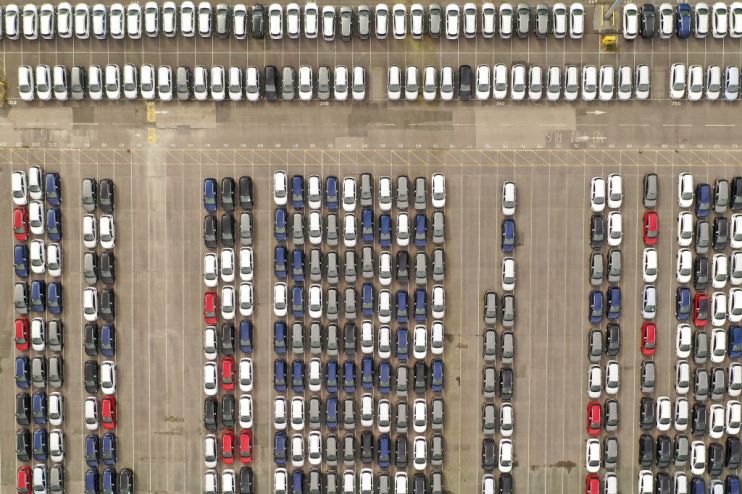UK car and battery producers set to miss out on benefits from new UK-US partnership

UK carmakers and battery producers will miss out on benefits from the much-anticipated US-UK economic partnership announced on Thursday, according to analysis from trade experts reported by the Financial Times.
Britain’s automotive and electric vehicle (EV) industry had been hoping that “Atlantic Declaration” deals would help address concerns in the sector surrounding the impact of Biden’s Inflation Reduction Act (IRA).
The SMMT warned in February that “while introducing measures to develop green investment are understandable, we must avoid an ‘arms race’ that leads to unfair competition and market distortions.”
“Recent measures in China, the US with its Inflation Reduction Act… could put the UK at a disadvantage.”
Biden’s IRA allows consumers who buy an EV to claim $7,500 (£5,966) in tax credits, if the vehicle is assembled in North America and a certain number of its parts are sourced from the region.
The negotiations are set to focus on enabling minerals processed or mined by UK companies to receive these credits when purchased by consumers, under what has been termed a Critical Minerals Agreement.
The UK is also pushing for a deal which would enable UK-built EV’s exported to the US to receive tax credits if they contain minerals that qualify for credits.
However analysis from trade experts suggests that under current proposed arrangements, automakers including Jaguar Land Rover (JLR) and some battery producers, would not qualify for these benefits.
Batteries and vehicles will still need to be assembled in the US under the terms in order to be eligible for the tax credits, they told the Financial Times.
The findings come following months of calls from the sector to address the UK’s waning competitiveness in the EV space.
Vauxhall-owner Stellantis recently warned the government that it may have to close factories as a result of tariffs caused by post-Brexit trading arrangements, which are due to come into force next year.
Of particular concern is the UK’s lack of battery manufacturing capacity. It is currently braced for the outcome of decision from Jaguar Land Rover’s owner Tata, as to whether a new gigafactory will be located in Somerset or Spain.
Mike Hawes, Chief Executive of the Society of Motor Manufacturers and Traders (SMMT), said today that “the UK’s supply chain produces almost every component theoretically needed to build an EV – although not in capacities to be self sufficient, and currently lacks significant critical mineral refining capability.”
“With negotiations now about to commence on a new partnership, critical mineral suppliers operating in the UK could eventually gain access to the important US market supplying American automotive manufacturers.”
“However, Britain can only benefit from such a deal if we seize the window of opportunity to increase our critical mineral production, build our own battery capability and supply US automotive production.”
A government spokesperson said: “The Atlantic Declaration is set to deliver several benefits to UK auto manufacturers.”
“As well as deepening our collaboration in emerging technologies that are essential for the development of our automotive sector, the critical minerals agreement will help grow our domestic critical minerals sector, which in turn will strengthen the UK’s electric vehicle industry.”